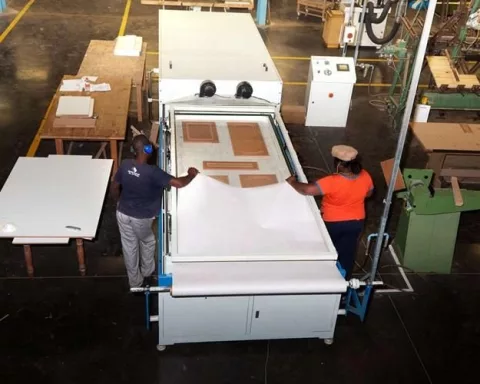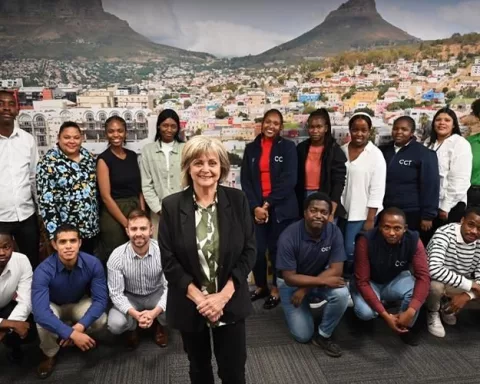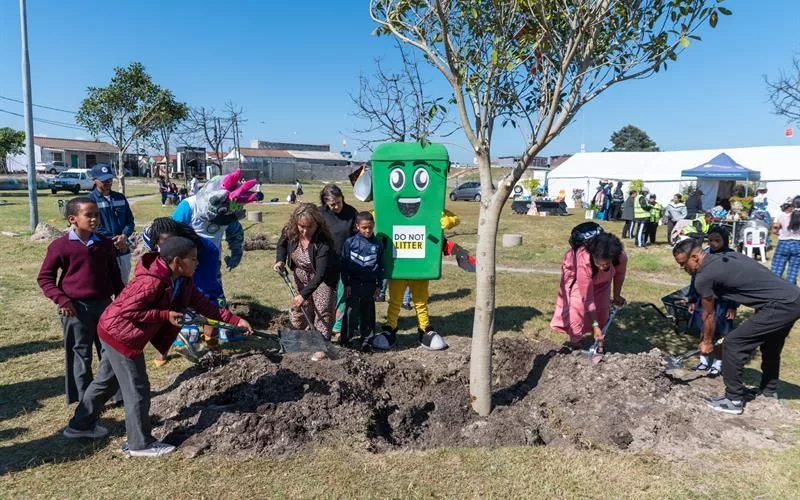The City of Cape Town is welcoming 19 recent graduates to its Infrastructure Skills Development Grant Programme, chosen from a staggering 3,035 applications. The diverse group possesses critical qualifications in infrastructure development fields and hails from various locales within the metro region and beyond. They will acquire invaluable on-the-job experience working on infrastructure projects and contribute to the city’s training capability and nurture a skilled set of professionals proficient in areas experiencing a talent shortage.
A Diverse Cohort for the ISDG
The City of Cape Town’s Infrastructure Skills Development Grant Programme has welcomed 19 exceptional recent graduates to acquire and contribute to infrastructure development. The programme saw a staggering 3,035 applications, and the selected graduates possess critical qualifications in infrastructure development fields. They hail from various locales within the metro region and beyond, attesting to the programme’s nationwide allure.
Nestled at the foot of the captivating Table Mountain, where the Atlantic Ocean’s azure waters lap the shores, Cape Town is embracing an exciting new chapter. On April 21, 2024, the City’s Corporate Services Directorate, under Alderman Theresa Uys’s guidance, warmly welcomed 19 exceptional recent graduates to its Infrastructure Skills Development Grant Programme (ISDG).
These burgeoning professionals are drawn from a wide array of academic fields, and are set to not only acquire, but also significantly contribute, to the city’s infrastructure development efforts. As emphasised by Alderman Uys, the programme’s primary objective is to enhance the city’s training capability and nurture a skilled set of professionals proficient in areas experiencing an acute talent shortage.
The ISDG, a highly coveted programme, saw a staggering 3,035 applications from all corners of the country, narrowing down to 116 prospective candidates. Following a meticulous selection process, 19 bright graduates were chosen, each possessing critical qualifications in infrastructure development fields. The group’s diverse expertise spans Geographic Information Systems, Town Planning, Process Technology, Civil and Mechanical Engineering, Groundwater Management, Science GIS, and Chromatography.
A Diverse Cohort for the ISDG
The selected graduates hail from various locales within the metro region, from Khayelitsha to Brackenfell. Some have travelled from distant areas like Ga-Mphahlele in the Limpopo province and Butterworth in the Eastern Cape, attesting to the programme’s nationwide allure.
The ISDG presents an exceptional chance for these graduates to glean knowledge from established professionals in the city corporation and acquire invaluable on-the-job experience with infrastructure projects. They will be involved in all facets of the projects, from initial planning and design to final implementation and project management.
Talents and Specializations of the ISDG Participants
The ISDG welcomes some remarkable talents such as Ashleigh Petersen and Xolelwa Mqhoma, who are honing their skills in Town Planning within the Spatial Planning and Environment department. Esethu Bacela and Mpho Makaleng, with a GIS focus, bring a unique skillset to the same department. The Water and Sanitation department gains strength with Mihlali Msesiwe, a Mechanical Engineer, and several Scientists, including Bangile Noel Rholihlahla, Dailin Jade Currie, Esethu Dudumashe, Unarine Mukhwathi, Paula Finini, and Shae-Lynn Hendricks.
Talent Lwazi Mbatha, an Industrial Engineer, joins the Energy department, while the Civil Engineering section within the Water and Sanitation department welcomes Lutho Ncayo and William Mashego. Obey Vhuma, Ross Lawrence Jacobs, Moegamat Abrahams, and Simphiwe Mnguni, all specializing in Town Planning, join the Spatial Planning and Environment department. Rounding out the team is Nicole Williams, a Scientist, who also joins the Water and Sanitation department.
Looking Forward with Enthusiasm and Determination
Several participants shared their anticipation and thrill at being chosen for the programme. Ross Jacobs voiced his eagerness to progress through the programme and discover the city’s different departments. Dailin Currie is eager to develop expertise and experience in science. Likewise, Lutho Ncayo expressed his desire to acquire the necessary experience to become a professional engineer.
The Infrastructure Skills Development Grant Programme not only provides a golden opportunity for these 19 emerging professionals but also symbolizes the City of Cape Town’s dedication to fostering the next wave of experts that will mould the city’s infrastructure. It signifies the city’s commitment to investing in human capital and unyielding belief in the youth’s potential. As the journey for these 19 graduates is just commencing, their work’s impact promises to resonate for many generations to come.
What is the Infrastructure Skills Development Grant Programme?
The Infrastructure Skills Development Grant Programme is an initiative by the City of Cape Town to train and nurture a skilled set of professionals proficient in areas experiencing a talent shortage in infrastructure development fields. The programme offers recent graduates an opportunity to gain invaluable on-the-job experience working on infrastructure projects.
How many graduates were selected for the ISDG?
Out of 3,035 applications, 19 graduates were chosen for the Infrastructure Skills Development Grant Programme.
What academic fields do the selected graduates come from?
The selected graduates come from a diverse range of academic fields, including Geographic Information Systems, Town Planning, Process Technology, Civil and Mechanical Engineering, Groundwater Management, Science GIS, and Chromatography.
Where do the graduates come from?
The selected graduates come from various locales within the metro region and beyond, including Khayelitsha, Brackenfell, Ga-Mphahlele in the Limpopo province, and Butterworth in the Eastern Cape.
What departments will the graduates work in?
The graduates will work in various departments, including Spatial Planning and Environment, Water and Sanitation, and Energy. They will be involved in all facets of infrastructure projects, from initial planning and design to final implementation and project management.
What is the impact of the ISDG?
The Infrastructure Skills Development Grant Programme not only provides a golden opportunity for these 19 emerging professionals but also symbolizes the City of Cape Town’s dedication to fostering the next wave of experts that will mould the city’s infrastructure. It signifies the city’s commitment to investing in human capital and unyielding belief in the youth’s potential.












